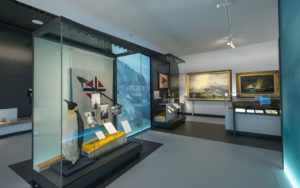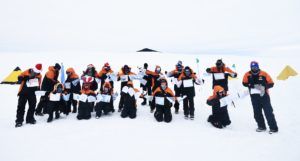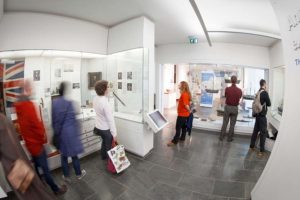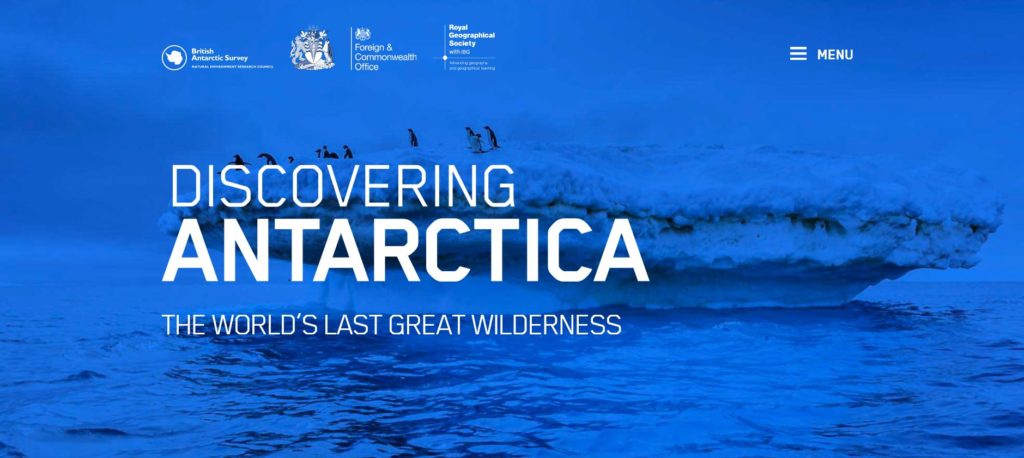The Antarctic Peninsula, which includes the British Antarctic Territory (BAT), is one of the fastest warming parts of the world. What happens in the region, affects us all.
Understanding the changes and also highlighting this to a wider audience is a key part of our strategy on education and outreach. Additionally with over a century of polar exploration and research there is an important story to tell of human endeavour.
We have helped fund a number of projects which support this.
Discovering Antarctica
www.discoveringantarctica.org.uk
Developed in conjunction with the British Antarctic Survey and the Royal Geographical Society (with the Institute of British Geographers), this educational website has been designed for secondary education (11-18). It provides teaching and learning resources linked to the English national curriculum. The site has won numerous awards and has been nominated for both BAFTA and WEBBY awards. Topics including climate and environmental change, the future of the continent, international politics, current scientific research and tourism. Since its launch in 2006 the website has received regular BAT funding to update and add new content.
Polar Gallery
Polar Gallery at the National Maritime Museum, Greenwich
The Kristian Gerhard Jebsen Gallery: Polar Worlds, is one of four new galleries at the National Maritime Museum that opened in September 2018. Spanning Polar expeditions, indigenous communities, scientific discovery and climate change, Polar Worlds immerses visitors in the realities of life in the Arctic and Antarctica. The exhibition includes relics from the Heroic Age of Antarctic Exploration as well as equipment used by contemporary polar explorers. The gallery showcases incredible stories of human endeavour and asks visitors to consider what the future holds for Polar Regions.
Among the many items on display, are a pair of Captain Scott’s overshoes, recovered from the camp in Antarctica where he died on his return from the South Pole; and the compass used by Shackleton on his epic open boat voyage to South Georgia to seek help to rescue his crew, marooned on Elephant Island.
The Government of the British Antarctic Territory is proud to have been able to make a contribution to support the construction of the new gallery together with the major support the Museum received from the Kristian Gerhard Jebsen Foundation, the UK Antarctic Heritage Trust, and the Transglobe Expedition Trust.

UK Polar Network
We have supported the UK Polar Network for a number of years including supporting their visits to schools, early career workshops, as well as their attendance at the Leeds Festival of Science and ‘Pint of Science’ events where polar researchers talk to early career researchers as well as conducting experiments. We also support their organisation of early career workshops covering a range of topics to support polar scientists such as science communication, project management and social media.

Scott Polar Research Institute
The Polar Museum at the Scott Polar Research Institute (SPRI) is free to visit and located close to the centre of Cambridge, UK. It hosts displays of both the history and contemporary significance of the Arctic and Antarctic and their surrounding seas. SPRI also houses the world’s premier Polar Library which we have supported for a number of years and hosts a number of our documents including Gazettes and some artwork of our stamps. The Polar Museum has produced a range of online resources, including short films and resources for teachers, as well as providing ever growing searchable catalogues about their extensive polar collections.


